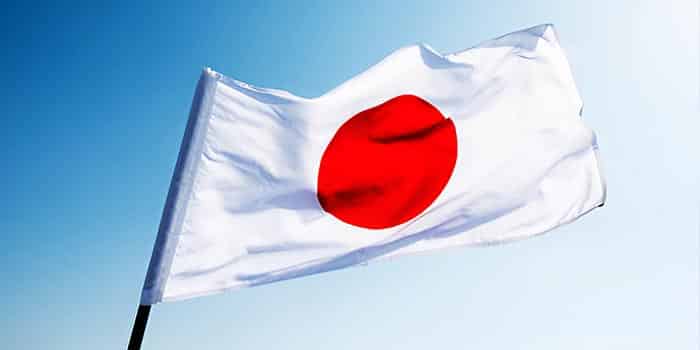- Casino
- By State
- Alabama
- Alaska
- Arizona
- Arkansas
- California
- Colorado
- Connecticut
- Delaware
- Georgia
- Florida
- Hawaii
- Idaho
- Illinois
- Indiana
- Iowa
- Kansas
- Kentucky
- Louisiana
- Maine
- Massachusetts
- Maryland
- Michigan
- Minnesota
- Mississippi
- Missouri
- Montana
- Nebraska
- Nevada
- New Hampshire
- New Jersey
- New Mexico
- New York
- North Carolina
- North Dakota
- Ohio
- Oklahoma
- Oregon
- Pennsylvania
- Rhode Island
- South Carolina
- South Dakota
- Tennessee
- Texas
- Utah
- Vermont
- Virginia
- Washington
- West Virginia
- Wisconsin
- Wyoming
- By State
- Slots
- Poker
- Sports
- Esports
In Asian Casinos, Baccarat Wins Bring Prompt Reckless Decisions

A new study by academics from Kyoto universities in Japan has surveyed 3,986 baccarat players at Paradise City in South Korea. All players were foreigners and the study focused on identifying their gambling patterns.
According to the findings of the study, players tended to exhibit symptoms of “recklessness” as soon as they registered several consecutive wins. The research was funded by Sega Sammy Holdings Inc, which is one of the investors in Paradise City resort at Incheon.
Sega Sammy Holdings is also mulling an investment in a casino resort in Japan, or an integrated resort, as the legislation is known in the country.
Specifically, Sega is bidding for a project in Yokohama city, looking to invest in the local infrastructure and create a project that would appeal to both the local authorities and national government, which has a final say as to which prefecture and city can proceed and host the first of three integrated resorts due to arrive by 2025.
Since problem gambling has proven a focal point for many politicians, Sega Sammy has decided to seek further proof as to how gambling affects players and use the data to consolidate its own positions as a bidder in the upcoming integrated resort.
Researchers said that a fundamental problem for gambling remained “how risky and repeated betting behavior varies.” The study is also a first attempt to use big data in narrowing down addictive behavior and triggers.
To this end, the study used 7.9 million baccarat games played by some 3,986 players. According to GGRAsia, which cited the study, the paper was focused on “examin[ing] changes in the betting amount and in the rate of betting on hands with different dividend rates, according to prior consecutive wins or losses”.
Superstition Reigns Supreme in Asian Players’ Gambling Behavior
Observing the pace and tendency of play, researchers established a “hot-hand fallacy” whereby the subject believes that the occurrence of random events somehow positively affects the outcome.
Bet sizes continued to decrease after consecutive losses but went up progressively after consecutive winnings. Another thing to consider is the average age of the gamblers posted at 46.4 years by the survey. In other words, those are experienced and conservative players who nevertheless get “carried away” and prefer to ramp up the size of their wagers as they register sequential wins.
The study effectively proves, though, that the intensity with which baccarat gamblers place bets after losing a bet is consistent with the practice of “chasing one’s losses.” Once again, the researchers believe this is a matter of unfounded superstition.
Nevertheless, Asian players continue to look for patterns that they attribute to good fortune and a chance to try and influence their game for the better. Sega Sammy’s next step is not defined yet, but the study is a powerful argument for any company looking to genuinely protect consumers.
Japanese integrated resort casinos, though, won’t be available to local Japanese players. They remain open to foreigners who can come, visit, play and bring the winnings back home without the need to pay any tax on them in Japan.
Related Topics:
With 5+ years of experience as an analyst, Julie—affectionately known as 'Jewels' in the office—has quickly become our go-to expert in the forex and cryptocurrency space. Her keen attention to detail and deep understanding of the industry make her an invaluable asset. Julie's expertise and enthusiasm have made her the top choice to co-pilot educational initiatives alongside Mike, bringing knowledge to the masses.
Previous Article

Casino
September 28, 2020
Massachusetts Casinos Start Scaling Post-Lockdown Operations

Must Read
Casino
June 24, 2025
NZ Opens Door to Regulated Online Casino Market
More Articles





Casino
June 30, 2025
Vietnam Greenlights $2B Van Don Casino Resort

Casino
June 26, 2025
Japan Signals New Expansion Phase for Casino Resorts

Casino
June 19, 2025
Korean Police Busts $384M Illegal Gambling Ring

Casino
June 18, 2025
Japan Bans Online Casino Ads Targeting Local Users










